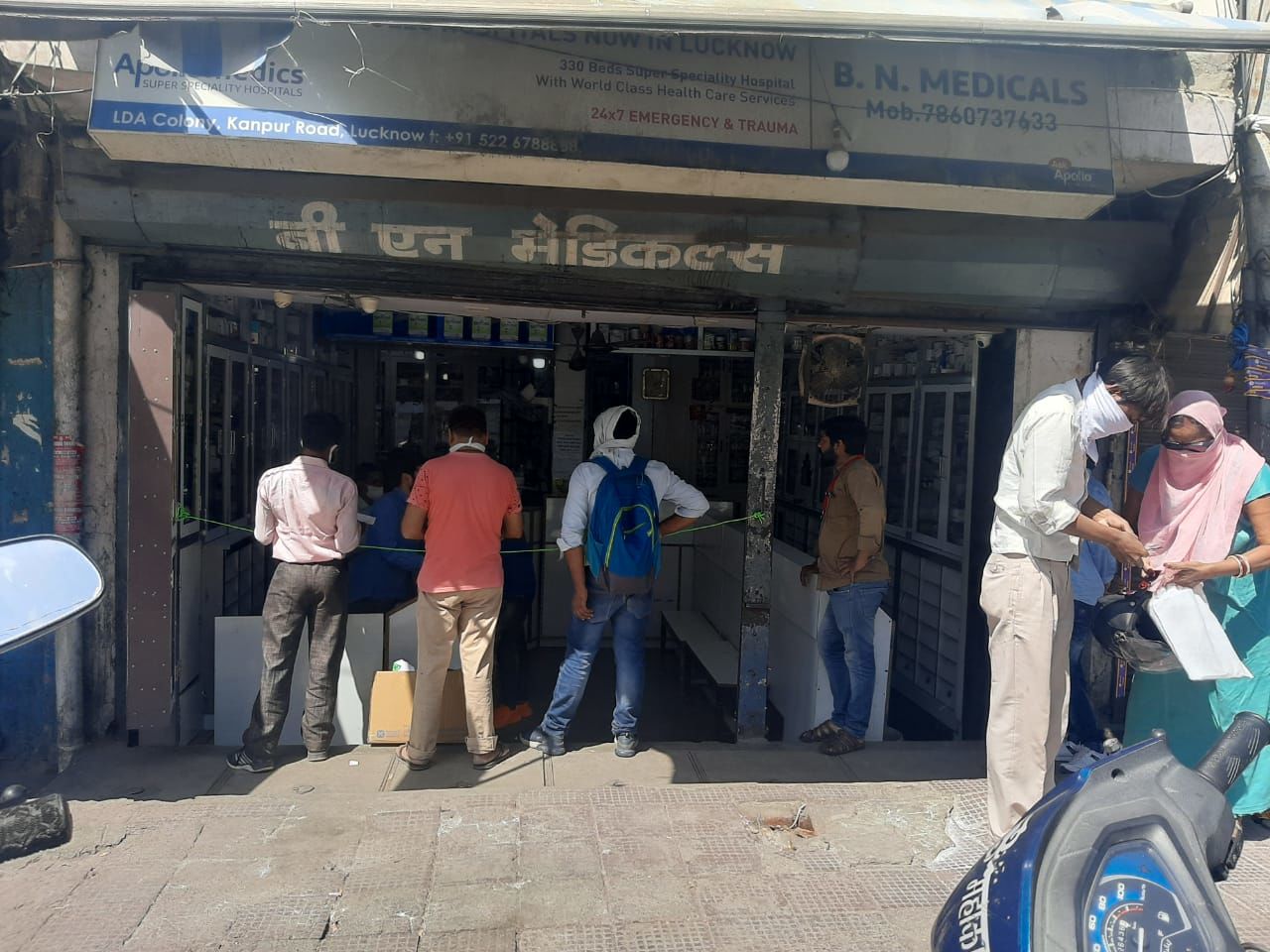Vineet Kumar, a resident of Azamgarh in Uttar Pradesh, has been upset for a few days now. The delivery date of his wife is nearing but his doctor has expressed his inability to help with her delivery. Vineet’s wife has hepatitis, so a hepatitis B kit is needed at the time of delivery, but the doctor did not have it. The kit was not available in the local market due to the lockdown. Vineet shared his problem on social media and a friend sent him the kit from Delhi.
Many are facing difficulties in procuring medicines and treatment due to the 21-day lockdown announced to fight the coronavirus, flying in the face of government claims that there will be no shortage. Even though medical stores are open, many are fast running out of stock of essential medicines as supplies are disrupted.
“The stock of medicines is fast dwindling at my store. I get the medicines from Gorakhpur. I now get a shipment once in 4-5 days against the daily supply earlier. People are also buying more medicines than they need, perhaps, they are stocking up. Anyway, the stock at my shop is going to end soon,” Furkan, owner of Jamjam Medical Store in Sant Kabir Nagar district of Uttar Pradesh said.
Recently, it was reported that 60 per cent of medical stores in Hyderabad are being closed. Kishan Murare Shetty, general secretary, Hyderabad Medical Stores Association, said: “The drug shops have been forced to close down as medicines are not able to reach them from the wholesale markets. Similar reports are coming from the wholesale market in Delhi and Kanpur in Uttar Pradesh.”
“Baddi in Himachal Pradesh is called the pharmaceutical hub of India, but today 95 percent of the companies are closed because they do not have the raw materials to make medicines,” said Munnish Thakur, general secretary of the Himachal Pradesh Drug Manufacturers Association, perhaps explaining the disruption in supply. “Pharmaceutical companies in India import active-pharmaceutical ingredients (APIs) from China. About 80 percent of the APIs came from China, but now that supply has been affected due to the coronavirus outbreak. The little raw material that has come to India is stuck at ports due to the lockdown. When there is no raw material, how will the companies make the drug?” he said.
“The other problem is that the companies that have the medicines are not able to supply them because of lack of transport facility. If I have to send one drug to Mumbai, I will have to pay for an entire truck. So only those who can hire an entire truck are able to supply. It is difficult for those who have only part-loads. Given that more than 70 per cent of pharmaceutical companies in India are small scale, only 50-60 companies in the country can afford to hire entire trucks,” Munish said.
The other problem is packaging materials. “Medicines cannot be sent to the market as they are. I will make the medicines, but I also need packets to pack them. Many packet-making companies are closed,” said Jagdeep Singh, owner of a pharma firm called Perex Pharmaceuticals Company in Mohali, Punjab.
The government is aware of the transport problem. The Union Home Secretary, Ajay Bhalla, had written to all states and Union Territories to allow transportation of all goods, both essential or non-essential, during the lockdown. After this order, Munnish Thakur hopes the transport problem will be resolved to some extent and that the smaller firms will be able to send their goods to the wholesale markets.
That may, however, completely remove the supply chain problem, because the real problem is in the wholesale markets, the vital link between the companies and the local medical stores.
“Companies are not able to send the shipments to us and we are not able to send medicines to other districts,” said Anil Upadhyay, a wholesale drug trader. “The lockdown has tied us up. The stock of many traders has been used up. The stock of antibiotics and critical medicines related to BP and heart disease are falling due to reduced supply. Whatever was available with us, we have distributed them. We are now waiting for companies to send us the goods,” he said.
“Also, those who have stock are not able to supply because only very few passes have been distributed. I was not able to get a pass since it was reported that available passes have been given away and that I will get one only after new ones are printed,” said Upadhyay.


















